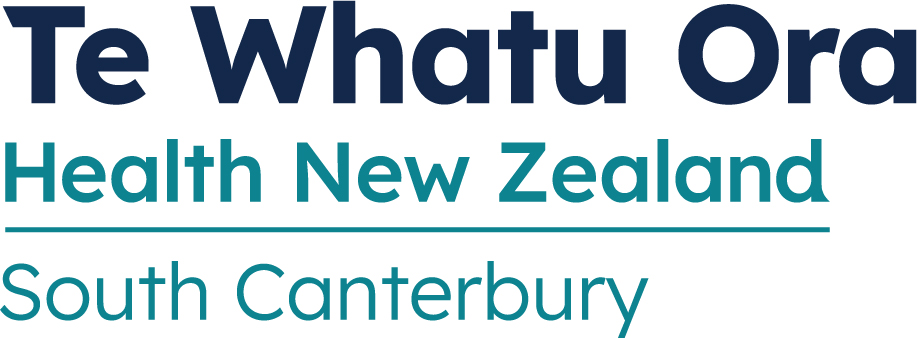Media Enquiries
For all media and patient status enquiries please contact the Communications Manager.
Karen Berry
Communications Manager
Te Whatu Ora South Canterbury
Private Bag 911
High Street
Timaru
Phone: 03 687 2395 or 021 139 7442
Fax: 03 688 0238
Email: kberry@scdhb.health.nz
OIA Requests
Email: oia@scdhb.health.nz
A guide for media seeking information about patients in Timaru Hospital
The Privacy Commissioner has stated that it is appropriate for hospitals to give out generic information about the status of patients to the media, unless the patient has specifically requested that no information be given.
A typical patient status report is short and might say something like; "A Timaru man in his 20s is in the Intensive Care Unit in a serious but stable condition".
At Timaru Hospital patient status reports can be given to media by the Communications Manager (see above), the duty nurse manager, the senior manager on duty, or the incident controller (in times of emergency).
Hospitals are required to tell patients on admission that they have the right to veto the release of information to the media. This is covered by a section on the hospital admission form. When the patient chooses confidentiality on the admission form, this choice is noted next to their name in the hospital IT system. The hard copy of this form is also kept with the patient file. If a patient has chosen confidentiality, we cannot confirm whether they are in hospital or provide their current status.
In some circumstances, the patient's next of kin can veto the release of information on the patient's behalf, for example if the patient is a child.
The usual practice at Timaru Hospital is to consult with the patient or their representative each time a media request is received (when possible). When the patient is unable to be consulted due to the seriousness of their condition, the hospital can legally provide a status report to the media without the patient's permission, provided they have not requested confidentiality on their admission form.
We will not give out the names of patients, or confirm names to the media. A status report can include the ward location of the patient as long as that location does not indicate what treatment they are receiving. For example, saying a patient is in ICU or ED is generic, saying they are in Jean Todd or Kensington reveals information about their treatment.
A status report can include the approximate age of the patient and whether they are male or female. In line with national guidelines, ages are provided in bands rather than specifically. A child is someone under 14, a teenager is someone up to 20, a man or woman will be described as in their 20s, 30s, 40s etc. A status report can also identify the patient's city or town of residence.
Different rules apply when the hospital holds information about a serious threat to public health, public safety and the lives or health of specific individuals. In this instance the hospital is able to provide more detailed information to the public.
Sometimes it is important for staff and media to be sensitive around some types of patient, including victims of sexual assault, victims of domestic violence, children, and elderly people with limited mental capacity. Staff will not release information if they are concerned that the patient has limited understanding. Timaru Hospital will never confirm or deny that a person is a client of our mental health services.
A multiple admission event is an emergency situation that results in more than one person coming to hospital at the same time, e.g. bus crash. When a multiple admission event has occurred, information covering the location of the accident, number of people seen by the hospital, age and sex of those injured, general nature of injuries and the condition of the injured can be provided to the media. Patient names are not to be disclosed.
Patient status codes
South Canterbury DHB uses the standard patient status codes:
We do not release any personal information regarding a patient without consent of the adult patient or, where the patient is a child, the consent of the parent or guardian.
Undetermined: The patient is awaiting assessment by a doctor.
Stable: condition unchanged.
Serious, but stable: vital signs stable, within normal limits, patient conscious and comfortable, indicators favourable.
Serious: vital signs stable and within normal limits, patient conscious but may be uncomfortable, indicators questionable
Critical: Vital signs unstable, not within normal limits, patient may not be conscious, indicators unfavourable.
Deceased: When the patient has died from illness the death can only be announced with the permission of the patient's next of kin. When a patient has died from suicide, accident or violent death, the police will hold this information and media will be referred to the appropriate officer if his/her name is known.
Patient not in hospital: The patient has been sent home without admission, or has been discharged.
